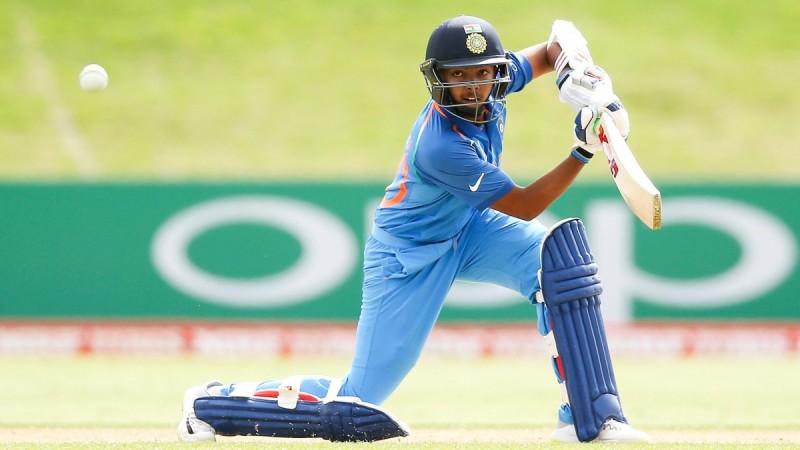
It was a historic moment for India in New Zealand today (February 3) as they defeated Australia to win their fourth Under-19 World Cup trophy.
At Mount Maunganui's Bay Oval on Saturday, the Rahul Dravid-coached side successfully chased down 218 in the final. It was a top-class effort from the "Boys in Blue" as they remained unbeaten throughout the tournament.
Also read: It is 'embarrassing', says Dravid
In the title clash, opener Manjot Kalra was the star with an unbeaten 101 as India scored 220/2 in 38.5 overs. Harvik Desai hit the winning runs, a boundary, to trigger wild celebrations in the Indian camp.
For captain Prithvi Shaw, it was a moment to cherish. He is only the sixth Indian skipper to have won World Cup. He scored 29 in the final.
India are now the most successful side in U-19 World Cup history. No team has won the trophy four times. India's previous triumphs came in 2000, 2008, 2012.
Legendary all-rounder Kapil Dev was the first Indian skipper to win a World Cup. India defeated the mighty West Indies at Lord's, England in the final to bring home the trophy.
A message from Prithvi Shaw to all of the India fans! ?? ? #U19CWC https://t.co/32HFFZTYnB
— ICC (@ICC) February 3, 2018
Indian captains winning World Cups
Senior level
1983 - Kapil Dev
India beat West Indies by 43 runs (June 25, 1983) - Lord's, London (England)
2007 (World T20) - MS Dhoni
India beat Pakistan by five runs (September 24, 2007) - Wanderers, Johannesburg (South Africa)
2011 - MS Dhoni
India won by six wickets (April 2, 2011) - Wankhede Stadium, Mumbai (India)
Under-19s
2000 - Mohammed Kaif
India beat Sri Lanka by six wickets (January 28, 2000) - Sinhalese Sports Club Ground, Colombo (Sri Lanka)
2008 - Virat Kohli
India beat South Africa by 12 (Duckworth/Lewis method) (March 2, 2008) - Kinrara Academy Oval, Kuala Lumpur (Malaysia)
2012 - Unmukt Chand
India beat Australia by six wickets (August 26, 2012) - Tony Ireland Stadium, Townsville (Australia)
2018 - Prithvi Shaw
India beat Australia by eight wickets (February 3, 2018) - Bay Oval, Mount Maunganui (New Zealand)














